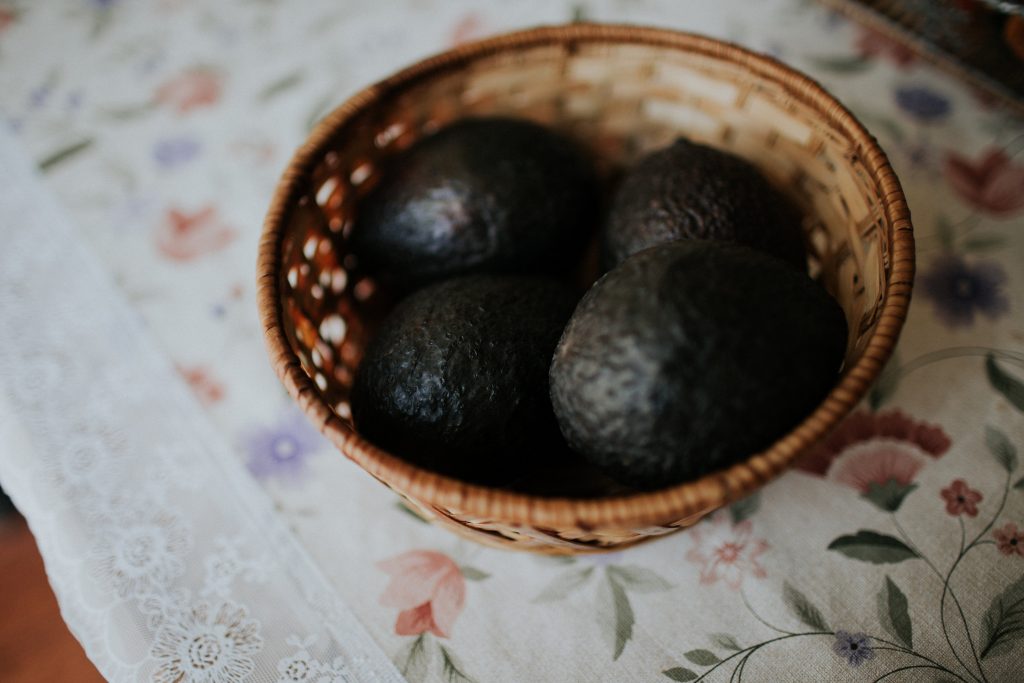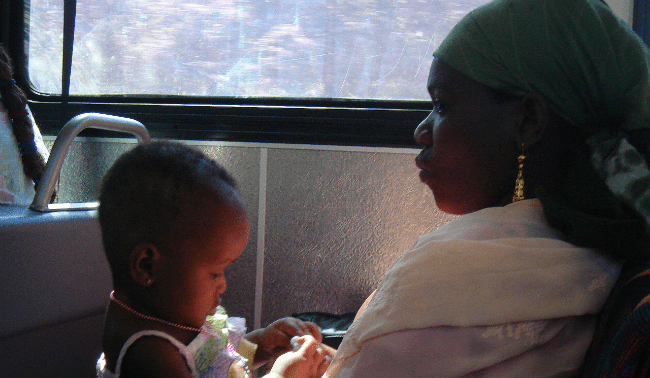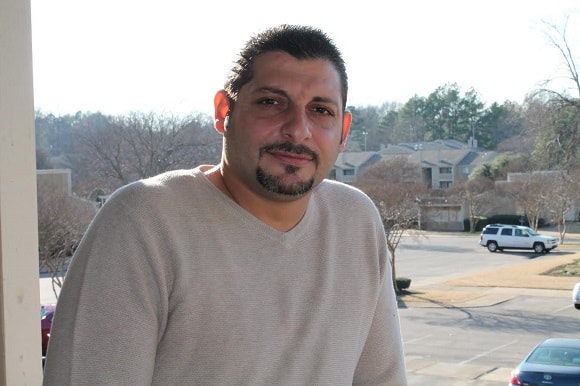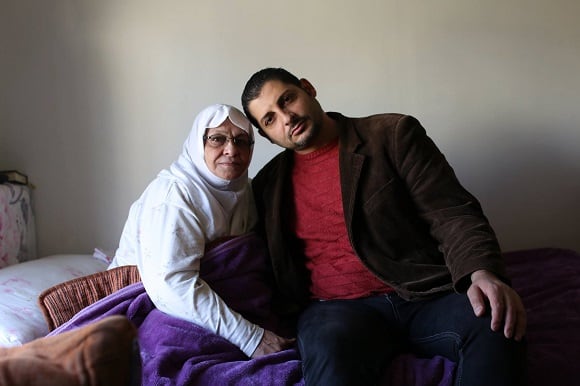Stories
Marianna’s Story: From hardship to happiness
Intern Stephen Sneed shares the powerful story of Marianna*, part of our #ThankGodForWomen series. We are grateful for her willingness to share, and hope that by telling it, we increase awareness of global hurdles that prevent many women and girls from living out the full potential God has placed within them. (*Names have been changed)
A native Filipino and wife of an Iraqi refugee, Marianna’s journey to Memphis is unique. Sacrificing her beloved childhood island home and dreams instead for steady employment that would financially provide for her parents and brothers, Marianna would work for many years before finding love and starting a family, only to be caught in the crosshairs of an immigration nightmare before finally finding happiness and freedom in the United States.
Originally from a small island and fishing community in the Philippines, Marianna is the fifth of eight children, but the only daughter. She recalls having a strong support system at home and speaks fondly of her parents and brothers as she describes early memories. She recalls her life in the Philippines as good, but very hard because of the lack of resources and job opportunities. Her mother was a street vendor, selling fish and crustaceans in order to buy the family’s food, which mainly consisted of rice. Her father, a farmer, struggled during many seasons of Marianna’s childhood when crops would refuse to grow.
Hard work, frugality, and education were valued by Marianna’s parents. Through careful savings over years of hard labor, they were able to send a couple of her older brothers to college. But by her high school graduation, no money was left, and she had to find a way to support herself and help her family. Opportunities as a domestic worker enticed her to contracts in Manila and eventually Cyprus. She would be responsible for cleaning, cooking, and acting as a full-time nanny for more prominent families.
Working and saving for four years in Manila followed by five years in Cyprus, the days were long yet her work ethic was unwavering. Upon each paycheck, Marianna would send the money she could spare back to her family. When informed of her younger brother’s college aspirations, she pushed aside hopes for her own education and continued to sacrificially send support. Due to her tireless efforts and his diligent studying, he graduated with a degree in electrical engineering. Extremely proud of him, Marianna is filled with gratitude when considering her role in helping him.
Away from her family and home for almost a decade, Marianna’s mother encouraged her to return home at the end of her contract. She enjoyed a restful reunion with her family for a couple of months before assessing the continued lack of employment opportunities at home, so she sought work abroad again. Through a connection with a relative in Lebanon, Marianna was granted documents for a domestic worker role similar to her jobs in Cyprus and Manila. She lived and worked with an employer family and transitioned well. However, at the end of her two year term, government regulations had changed: she could not renew her contract, nor had she earned enough money to return home.
A fellow Filipino woman compassionately provide Marianna with work at a Lebanese nail salon. This woman was more than just an employer to her, but a friend who fostered community: someone she considered to be family. During this new-found season of stability, Marianna met a man named Abdul* through the connection of a mutual friend. He was an Iraqi refugee who had fled Saddam Hussein’s army and escaped by foot to Syria. There he was granted refugee status with the UNHCR (United Nations Commissioner for Refugees) and temporarily resettled in Lebanon. What began as a slow friendship, visiting once a week for two years, allowed them to truly get to know one another and lead into their biggest adventure either had ever been a part of: marriage.
With love in her eyes, Marianna joyfully described her wedding day. She smiled as she spoke of her husband and what a good man he was. However, because they were both so far from home on their big day, Marianna and Abdul were the only ones in attendance. Rainy and cold that afternoon, Marianna nevertheless saw it as a blessing and she still dreams of her walk down the aisle in her white dress.
In 2015, two years after she married Abdul, Marianna gave birth to their son, David*. But tears welled up in Marianna’s eyes as she pressed forward in our conversation to describe a series of events full of trial and great difficulty.
During the years Marianna worked at the nail salon, the Lebanese government required differing detailed worker permits and documentation dependent upon the type of immigrant or refugee employment. Marianna’s status and documentation as the wife of a refugee was what she thought she needed in order to continue working in the salon. However, only five months after David was born, men from Lebanon’s Immigration Services arrived at the nail salon and informed her that her permit was not valid. Arrested and taken to jail, Marianna’s infant son was left behind in his crib at the shop.
She recounted her imprisonment through tears. Small and overcrowded, it offered no sunlight or fresh air due to its location under a bridge. Many of her fellow inmates were guilty of serious offenses. Marianna struggled to understand why she had been taken there. She desperately needed to be with her baby and above all, feared the possibility of being deported to the Philippines without her son and husband. She cried and prayed to God to reunite her with her family.
After 15 days, a representative from the UNHCR negotiated her release. Her prayers were answered: she was joyfully reunited with her family and returned to work with the proper paperwork. But soon Marianna learned that her father had fallen ill back in the Philippines. She needed her passport in order to visit him, but it had been confiscated when she was arrested! Marianna was advised that in order to retrieve her passport she would have to sign for it in person. Complying, she nervously returned, but instead of receiving her passport, prison authorities detained her again, this time with no reason or explanation. She suffered in prison another 15 days before the UNHCR could intervene. Tragically, her father passed away while she was detained and she missed his funeral. She felt as though her whole world had been flipped upside down. Relieved to be with her son and husband, she realized Lebanon was no longer the safe haven needed to raise a child and build a future. Abdul and Marianna urgently pursued permanent refugee resettlement.

In January 2017, Marianna, Abdul and David received the joyful news that they were finally granted permanent resettlement to the United States. World Relief Memphis greeted them with love and support for their early months of transition to their new home and new culture. During that same time, we paired them with a Good Neighbor Team, a small group of caring volunteers to walk alongside them in friendship and support. Together with World Relief, their Volunteers, and such a welcoming city, they are happy, healthy, and finally moving forward as a family.
Some milestones to celebrate in their first year in Memphis include Abdul’s job at a Memphis factory. He takes a few minutes of his lunch break to FaceTime with Marianna and David. Marianna passed her driver’s test after practicing daily with a new local Filipino friend. David is happy, healthy, and hungry to learn. English is spoken in their home, and he has learned his ABCs, counting to ten, and is quick to tell you what sound a horse makes. Seeing Marianna with David as he sleepily walks around their apartment in his Sponge Bob pajamas, it is incredibly touching to observe how devoted and caring a mother she is after having served so many other families as a nanny, and sending her money back to the Philippines to help her family survive. Now home with her own son, she provides David with encouragement and the deepest love. American flags and red, white and blue decorations grace their hospitable first American apartment, where tasty recipes are shared and delicious food is served to visitors. Marianna, content after so many years of hardship and fear, beams with joy. Now that she, Abdul, and David are settled in the U.S., they are happy…and they are free.
– by Stephen Sneed
After reading Marianna’s story, can you identify the global giants she had to overcome? Some common obstacles for women and girls around the world include gender inequality, access to education, employment opportunities, and harmful belief systems – resulting in social, emotional, physical, and spiritual poverty.
Additionally, 22.5 million people have official refugee status due to persecution and conflict like Abdul. Less than 1% are approved for permanent resettlement in the U.S. and other countries.
Be part of welcoming them – and transforming communities at home and around the world. If you would like to learn more about Good Neighbor Teams or other ways to come alongside our refugee and immigrant community, please visit worldrelief.org/memphis/get-involved/volunteer.
3 Ways to Meet Transportation Needs in Memphis
If you’ve been involved with refugees in Memphis, you already know that transportation is one of the greatest challenges facing these new Memphians. The WRM team has seen first hand how successfully refugees overcome this challenge and found these two articles interesting when considering difficulties with transportation.
In an article entitled The 7 biggest challenges facing refugees and immigrants in the US, Christina Nuñez, editor of Global Citizen, states that the lack of access to reliable transportation can affect nearly every aspect of a newly arrived refugee’s life. She describes how limited English proficiency and literacy can delay obtaining a driver’s license. The article also mentions that once a family does have one car, this still does not always meet all the needs for transportation. For example, children may need to go to school and adults may need to go to work or run errands at the same time.

In the March 2016 issue of The Atlantic, James Fallows further illuminates transportation challenges in How America Is Putting Itself Back Together. Fallows acknowledges the economic contribution of refugees and immigrants to smaller cities and towns while pointing out the difficulties created by inadequate transportation. In the article Fallows notes that unreliable public transportation is a significant challenge faced by refugees, who sometimes solve these problems by walking long distances to and from work, even in inclement weather. Fallows also tells that cultural norms regarding transportation can be challenging.
In Memphis, you can help new refugees overcome their transportation challenges in 3 ways.
- Driver’s Education Classes: Donate $500 to pay for a refugee to attend class and receive private driving lessons. Students also have the opportunity to take driver’s license testing.
- ESL Volunteers: Volunteer to help a refugee become fluent and literate in English so they can pass the driving exam.
- Used Cars: Donate a working used car or money towards the purchase of a first car.
Acting on any of these steps will help refugees assimilate to life in Memphis and move towards self-sufficiency.
Syrian refugees find new hope in Memphis
So far 19 Syrians have taken refuge in Memphis, and Mahmoud Al Hazaz is just one. He left his home country of Syria behind and took his family to Jordan after the government shelled his successful restaurant. But life is rarely easy for a refugee. Mahmoud has now found safety in the Bluff City for his wife and four children and is hopeful the rest of his family can join him here soon.
This isn’t a story of pain, even though it could be. It’s a story of hope that rises out of pain, and that’s probably the most genuine kind.
Imagine owning a successful restaurant, one that is profitable and full of customers, the kind you see time and again across Memphis. Mahmoud Al Hazaz’s street-level restaurant in Homs, Syria, drew big crowds, bringing him success and a good life.
But in the early days of what has turned into a crippling civil war, big crowds came to represent dissension to the Syrian government. In early 2011, when the Syrian regime came across large crowds they countered with AK47s, tanks and other weapons.
It was during this time that Mahmoud’s busy restaurant was hit with a tank shell. Thankfully when diners saw troops coming, they all went inside and no one died.
Think about that for just a moment. No one died. At a restaurant. Talk about finding the good in a bad situation.
“In the beginning of the events they started with peaceful demonstrations,” Mahmoud says through an interpreter. “Then the Syrian regime came with weapons. When they would see a big group of people they’d shoot at them. We had a crowd of people at the restaurant and the government hit it.”

Mahmoud tells this story as he sits in the living room of the Memphis apartment he has called home since early December. There is no emotion in his eyes as he retells his story in a matter-of-fact tone. Maybe it’s the passage of time – it has been more than four years, after all – or maybe the fact no one died in this attack. Either way, Mahmoud seems grateful.
There is something different about Mahmoud. By all accounts, he is an excellent chef, with the ability to make fantastic versions of traditional Syrian specialties. But on this mild and sunny January afternoon in Memphis, Mahmoud isn’t talking about food. Not yet, anyway.
His restaurant was destroyed by his government. He and his business partner responded by reopening it in a taller building so it wouldn’t be in the line of fire. But Mahmoud also decided it might be safer if he stayed with a friend instead of in his own home.
The fighting eventually followed. The free Syrian army and Syrian government forces had firefights around his restaurant.
It’s estimated that since the Syrian civil war began in early 2011, a quarter of a million people have died. Mahmoud’s father was one of them. Mahmoud didn’t share how, only that a bullet did the job. No emotion, just a bullet.
Mahmoud left his successful restaurant of five years behind and took his family to Jordan. It was still pretty easy to leave Syria in November 2011. In those days a passport was enough.
It also helped that at the border crossing, no charges against Mahmoud or his brothers were found. So they were allowed to cross, ultimately settling in the capital city of Amman.
When he and his family first arrived, conditions were good. They were welcomed, and Mahmoud and his family began to resume life in a new home. But life is rarely easy for a refugee.
“In the beginning, Jordanians were welcoming,” Mahmoud said. “Their treatment was good, but then as more and more came and it got crowded, the way we were treated was difficult.”
Mahmoud said rents were raised, but because of his restaurant experience, this successful chef had no problem finding work, especially in the beginning. Also, living conditions weren’t bad, especially compared to Syria. Mahmoud’s extended family of 10 shared a four-bedroom apartment.
But then more Syrians followed and with them more difficulties. In his first year in Jordan, Mahmoud didn’t need special permission to find work. Later, though, the country began requiring refugees to acquire permission papers to gain employment, which meant it cost about $700 a year just to get a job.
In Memphis, Mahmoud hopes to gain permission to work soon. His traditional Syrian food is really good, he said. It’s hard not to take this man’s word for it. He’d love to find a restaurant that could use his services, or maybe a restaurant owner or investors willing to take a chance on a man who’s already taken a chance on life and won.
“All my experience has been with Arabic food, so that’s what I’m comfortable with. But I can learn anything,” he said. “I can do Western food.”
In broken English, he said “KFC,” with a smile.
Mahmoud has found safety in Memphis for his wife and four children. But his mother and brother, as well as his brother’s wife and child, are still in Jordan. Mahmoud said the family is hopeful to hear soon they can come to the United States.
Maybe you’ve heard their story. Mahmoud’s mother was interviewed by the website Humans of New York in early December. “Tomorrow he’s leaving for a place called Memphis, Tennessee,” she told the site. “I don’t know what I will do without him. I hope they will let me come to Memphis too. Can you tell us anything about Memphis? Are there nice people there? I heard that it is a city of music. I love music.”
Mahmoud is hopeful his family can join him here. He also has a brother still living in Syria, and two others living in Germany and Brazil, respectively.
Memphis is a different world than Syria. For one thing, Homs is a battleground.
“I didn’t know anything about Memphis,” Mahmoud said. “I knew California and Texas. It’s very nice here. The people have been excellent. Their treatment of us has been very good. I’m not just saying this for your sake. When I talk to my family they ask, ‘How is the treatment of Americans,’ and I say it’s wonderful.”
Mahmoud said his children were afraid at first because they were around new people, and because they didn’t know the language. They’re adjusting, though, particularly the girls – ages 10, 8 and 5 – who are all in school. The boy is 2 1/2, and like most toddlers, his attention is on the phone in his hands instead of the American reporter in his living room.
Mahmoud said his life was wonderful in Syria, but that was before the civil war. There is no going back for him, ever.
“Syria’s finished,” he said with a smile. “As far as I’m concerned Syria’s finished.”
He did admit that he’d like to one day live in his home again, but he knows better.
“There’s nothing to go back to,” he said. “The old city is demolished, complete destruction. There is no going back.”
Not to their house, at any rate. When they left Syria, Mahmoud and his family left a home fully furnished. Afterward, they heard everything was stolen, even the toilets, electrical fixtures, and light bulbs. It’s since been destroyed, presumably by an artillery shell.
And of course, Mahmoud’s story isn’t unique.
More than 800,000 Syrian refugees sought asylum in Europe between April 2011 and November 2015, according to the United Nations. That’s enough people to fill 12 soccer fields, standing very tightly.

Additionally, the UN has registered more than 4 million Syrian refugees in Turkey, Lebanon, Jordan, Iraq, Egypt and North Africa, most of them living in camps close to the border. For these refugees, it would take 62 soccer fields.
So far 19 Syrians have taken refuge in Memphis. Nearly 55 soccer fields fit in one square mile, and Memphis is over 300 square miles in size. That’s enough room for considerably more than 19 Syrians.
Steve Moses is the office director for World Relief Memphis, an organization that brings about 200 refugees a year to the area. He recently was in the Middle East, a region he’s spent a lot of time in over the years. He gets emotional recalling a 5-year-old girl he met.
“She cuts herself, breaks glass in her hand, takes cold showers yet shows no emotion,” he said. “Her uncle sits incapacitated and in a deep depression.”
But the most important part of the work he does, Moses said, is to deliver the message he’s been told to bring back to America, time and again.
“All – yes, all – of them stated they are human,” he said. “Real people … they desire for dignity and respect. (They want) their personal stories to be known and not simply lumped together as a large group of people.”
By Lance Wiedower in the High Ground News on Thursday, January 21, 2016. The original article can be found here.




